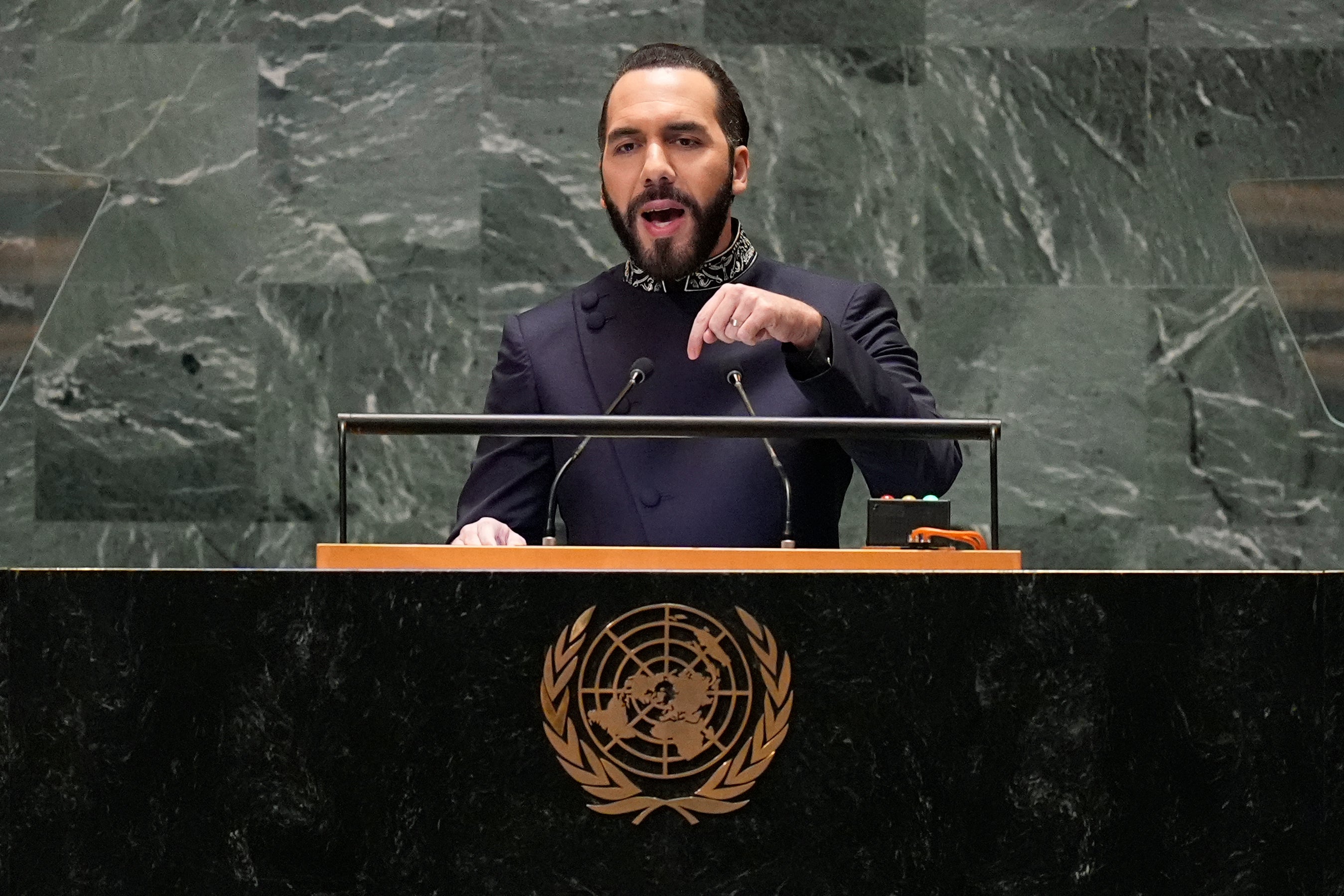The first US Peace Corps volunteers return to El Salvador since leaving in 2016 because of violence
The first U.S. Peace Corps volunteers returned to El Salvador since the American force left in 2016 because of violence in the Central American country

Your support helps us to tell the story
From reproductive rights to climate change to Big Tech, The Independent is on the ground when the story is developing. Whether it's investigating the financials of Elon Musk's pro-Trump PAC or producing our latest documentary, 'The A Word', which shines a light on the American women fighting for reproductive rights, we know how important it is to parse out the facts from the messaging.
At such a critical moment in US history, we need reporters on the ground. Your donation allows us to keep sending journalists to speak to both sides of the story.
The Independent is trusted by Americans across the entire political spectrum. And unlike many other quality news outlets, we choose not to lock Americans out of our reporting and analysis with paywalls. We believe quality journalism should be available to everyone, paid for by those who can afford it.
Your support makes all the difference.U.S. Peace Corps volunteers returned to El Salvador Friday for the first time since the American force left in 2016 because of violence in the Central American country.
It was the latest sign of a thaw in U.S. relations with El Salvador, whose President Nayib Bukele was once shunned because of his harsh crackdown on street gangs.
It was also a sign of how much Bukele’s widespread arrests of suspected gang members - which also jailed a considerable number of apparently innocent young men - has reduced the country’s once-fearsome homicide rate.
The Peace Corps said the first nine volunteers would work on community economic development, education, and youth initiatives. All nine had previously worked two-year stints in other Central American countries.
“Today is not just a celebration, it’s a commitment to continue building on the decades-long partnership with the people of El Salvador,” said Peace Corps Director Carol Spahn.
More than 2,300 Peace Corps Volunteers had worked in El Salvador since 1962. The Peace Corps volunteers left after El Salvador's gang-fueled homicide rate reached a high of 106 murders per 100,000 inhabitants on 2015. That year there were 6,658 killings in the country of 6.3 million.
Under a state of emergency originally declared in 2022 and still in effect, Bukele’s government has rounded up about 81,900 suspected gang members in sweeps that rights groups say are often arbitrary, based on a person’s appearance or where they live. The government has had to release about 7,000 people because of a lack of evidence.
In July, the human rights organization Cristosal said at least 261 people have died in prisons during the crackdown.
While the government is accused of committing mass human rights abuses in the crackdown, Bukele remains highly popular in El Salvador because homicide rates sharply dipped following the detentions. The Central American nation went from being one of the most dangerous countries in the world to having the lowest homicide rate in the region.
In all of 2023, the country saw only 214 homicides, and 116 so far in 2024.
Bukele rode that popularity into reelection in February, despite the country’s constitution prohibiting second terms for presidents. The United States did not object and sent a high-level delegation to his inauguration for a second term.